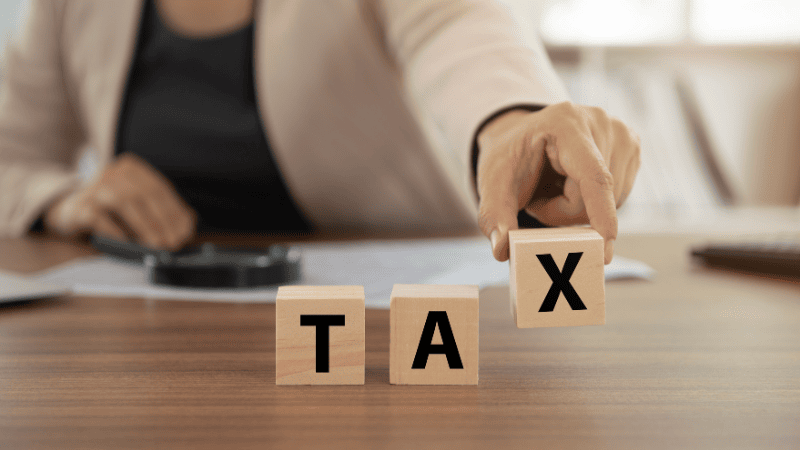Becoming a landlord can be a rewarding venture, but it comes with its own set of challenges, especially when it comes to understanding rental property taxes. For new landlords, navigating the complex world of landlord tax deductions, rental income tax, and property tax strategies may seem daunting at first. But don’t worry, with the right knowledge and a few strategic tips, you can maximize your tax benefits and avoid unnecessary pitfalls. This ultimate guide aims to demystify rental property taxes, offering you essential tax tips for landlords, insights on rental property depreciation, and practical advice on tax filing for landlords. Ready to take control of your rental tax obligations and turn them into opportunities? Let’s dive in!
Understanding Rental Property Taxes
Basics of Rental Income Tax
Understanding rental income tax is crucial for every landlord. Rental income includes all the payments you receive from tenants for the use of your property. It’s not just the monthly rent; it also includes advance rent payments, security deposits that you keep, and any other fees paid by the tenant, like late fees or lease cancellation fees.
You must report rental income on your tax return for the year you receive it, which might be different from the year it’s earned. This income is typically reported on Schedule E (Form 1040), which then flows through to your personal tax return. Keeping accurate records of all rental income is essential to ensure you’re reporting everything correctly and taking advantage of allowable landlord tax deductions. This way, you can minimize your tax liability and stay compliant with IRS regulations.
Common Property Expense Deductions
Understanding and maximizing property expense deductions can significantly impact your bottom line as a landlord. These deductions cover a range of costs directly associated with managing and maintaining your rental property. Common deductible expenses include mortgage interest, property taxes, and repair costs. If you hire a property management company, their fees are also deductible.
Utilities, insurance premiums, and advertising costs for finding tenants are other expenses you can deduct. Additionally, if you travel to manage your property or attend seminars related to property management, those travel expenses may also qualify.
It’s crucial to maintain thorough records and receipts for all these expenses to substantiate your deductions. By leveraging these deductions, you can significantly reduce your taxable rental income, which means more money stays in your pocket at the end of the year. Always consult with a tax professional to ensure you’re capturing every eligible deduction.
Navigating Tax Filing for Landlords
Filing taxes as a landlord can be complex, but understanding the process helps in managing it efficiently. The key document for landlords is Schedule E (Form 1040), which is used to report rental income and expenses. Each property you own should be listed individually, and you’ll need to detail all income and deductible expenses for each.
Accurate record-keeping throughout the year is crucial to ensure all income is reported and every eligible expense is deducted. You should also be aware of deadlines to avoid penalties. If your rental activities are extensive, consider seeking the advice of a tax professional. They can provide guidance on complex issues like passive activity loss rules and help you develop effective property tax strategies.
Understanding the intricacies of tax filing for landlords ensures compliance and optimizes your financial benefits, making your rental business more profitable.
Maximizing Landlord Tax Deductions
Essential Tax Tips for Landlords
Staying on top of tax tips for landlords can significantly improve your financial outcomes. First, always maintain detailed records of all income and expenses related to your rental property. This includes receipts, invoices, and bank statements. Good record-keeping ensures you can substantiate every claim come tax time.
Next, consider the benefits of rental property depreciation. Depreciation allows you to deduct a portion of the property’s cost over several years, which can drastically lower your taxable income.
It’s also wise to stay informed about any tax law changes that might affect your deductions. For example, recent tax reforms may have introduced new rules or limits on certain deductions.
Lastly, don’t overlook the value of professional advice. A tax professional can provide personalized guidance tailored to your specific situation, ensuring you maximize deductions and comply with all regulations. By following these essential tax tips, you can make the most of your rental property investments.
Leveraging Rental Property Depreciation
Rental property depreciation is a powerful tool for landlords looking to maximize tax deductions. It allows you to deduct the cost of the property over its useful life, typically 27.5 years for residential properties. This deduction can significantly reduce your taxable rental income each year.
To leverage depreciation effectively, it’s crucial to accurately determine the depreciable basis of your property. This is generally the property’s purchase price minus the value of the land. Improvements can be added to the basis, providing further depreciation benefits.
Understanding which assets qualify for depreciation and how improvements and repairs differ is vital. Large renovations are capitalized and depreciated, whereas repairs may be immediately deductible.
Lastly, always remain informed about current tax regulations regarding depreciation. Consulting with a tax advisor can ensure you’re using these rules to your advantage, helping you optimize your tax strategy and enhance the profitability of your rental business.
Smart Property Tax Strategies
Smart property tax strategies can help you maximize your rental income and minimize your tax liability. One effective approach is to take advantage of all available landlord tax deductions. This includes not only common expenses like mortgage interest and property management fees but also less obvious ones like home office expenses if you manage your rental property from home.
Another strategy is to structure your property ownership in a tax-efficient manner. For instance, owning property through a limited liability company (LLC) can provide certain tax benefits and protections. It’s also wise to consider the timing of large expenses. Investing in significant repairs or renovations towards the end of the year can increase your deductions for that tax year.
Lastly, always stay informed about local property tax laws and potential exemptions or credits that might apply to your rental property. Consulting with a tax professional can help you implement these strategies effectively, ensuring you optimize your tax situation.
Managing Rental Property Income
Tracking and Reporting Rental Income
Accurate tracking and reporting of rental income are essential for compliance and maximizing your financial benefits as a landlord. Begin by maintaining a comprehensive record of all rental payments received. This includes monthly rent, advance rent, security deposits you retain, and any additional fees like late charges or lease termination fees.
Utilize accounting software designed for rental properties to streamline this process. These tools can help you organize income and expenses, making tax time less stressful.
When it comes to reporting, rental income must be declared in the year it’s received. This typically involves completing Schedule E (Form 1040), where you’ll detail all sources of rental income and associated expenses.
Ensure you keep supporting documents, such as bank statements and receipts, to substantiate your reported income. Proper tracking and reporting not only keep you compliant with IRS regulations but also provide a clear financial picture of your rental business, aiding in better decision-making and planning.
Avoiding Common Tax Pitfalls
Avoiding common tax pitfalls is crucial for landlords to ensure compliance and optimize their tax situation. One frequent mistake is failing to report all rental income, which can lead to penalties and audits. Always report the full amount of income received, even if part of it was used for repairs or other expenses.
Another pitfall is improperly classifying expenses. It’s important to distinguish between repairs, which are typically deductible immediately, and improvements, which must be depreciated over time. Misclassification can affect your deductions and tax liability.
Neglecting to keep thorough records is another common error. Without proper documentation, you may struggle to substantiate deductions or income in case of an audit. Ensure you save all receipts and financial records related to your rental property.
Finally, staying informed about changes in tax laws is essential. Tax regulations can change, and failure to comply with new rules can result in penalties. Consulting with a tax professional can help you navigate these complexities and avoid costly mistakes.
Advanced Property Tax Strategies
Long-term Tax Planning for Landlords
Long-term tax planning is essential for landlords who want to optimize their financial performance and reduce tax liabilities over time. One effective strategy is to plan for property depreciation. By understanding and applying depreciation rules, you can spread out the deduction of your property’s cost over its useful life, significantly lowering your taxable income each year.
Another crucial aspect of long-term planning is considering the timing of major expenses and improvements. Strategically timing these investments can maximize your deductions in high-income years, offering more significant tax benefits.
Estate planning should also be a part of your long-term strategy. Consider the implications of transferring property to heirs and explore options like trusts to minimize estate taxes and ensure a smooth transition of assets.
Lastly, regularly review and update your tax strategies. Tax laws change, and regular consultations with a tax professional can help you stay compliant while making the most of available deductions and credits. By incorporating these long-term strategies, you can enhance the profitability and sustainability of your rental business.
Utilizing Professional Tax Services
Utilizing professional tax services can be a game-changer for landlords, especially when dealing with complex property tax strategies. A tax professional brings specialized knowledge that can help you maximize deductions, navigate changing tax laws, and avoid costly mistakes.
One major advantage of hiring a professional is their ability to provide personalized advice tailored to your specific situation. They can help you structure your property investments in a tax-efficient manner, ensuring you take full advantage of available deductions and credits.
Tax professionals also offer peace of mind by ensuring compliance with all tax regulations. This can significantly reduce the risk of audits and penalties. Moreover, they can assist with long-term tax planning, helping you forecast future tax liabilities and develop strategies to minimize them.
Incorporating professional tax services into your financial planning can save you time and money, allowing you to focus on growing and managing your rental property business more effectively.
Staying Informed and Compliant
Updates in Rental Property Tax Laws
Keeping abreast of updates in rental property tax laws is vital for landlords aiming to maintain compliance and optimize their financial strategies. Tax regulations can change frequently, impacting how rental income is taxed and which deductions are available. Recent changes might include modifications to depreciation rules, new limits on certain deductions, or adjustments in tax rates.
Staying informed can help you adapt your tax strategies accordingly, ensuring you continue to benefit from all available deductions and credits. Regularly reviewing IRS updates and consulting with a tax professional can provide clarity on how these changes affect your tax obligations.
It’s also helpful to join landlord associations or forums where tax changes are often discussed. These platforms can offer insights and practical advice from fellow landlords.
By staying updated on tax law changes, you can make informed decisions, remain compliant, and optimize your rental property’s financial performance, ultimately enhancing the profitability and sustainability of your investments.
Resources for Ongoing Tax Education
Staying educated about rental property taxes is essential for long-term success as a landlord. Several resources can help you keep up-to-date with tax laws and best practices. The IRS website is a valuable source of official information, including updates on tax regulations and detailed guides on various tax topics.
Additionally, consider subscribing to industry-specific newsletters or journals. Publications like “The Landlord’s Journal” often cover recent tax law changes, tips for maximizing deductions, and other relevant financial strategies.
Webinars and online courses offered by tax professionals or real estate organizations can also be beneficial. These programs provide in-depth knowledge and practical advice tailored to landlords.
Networking with other landlords through associations or online forums can offer peer insights and real-world experiences. Lastly, don’t underestimate the value of professional consultations. Regular meetings with a tax advisor can provide personalized guidance and help you stay compliant while optimizing your tax strategy.
By leveraging these resources, you can stay informed and continually improve your tax management skills.



